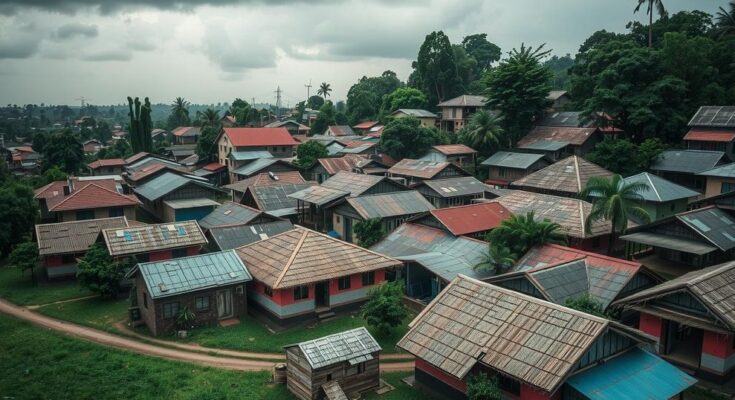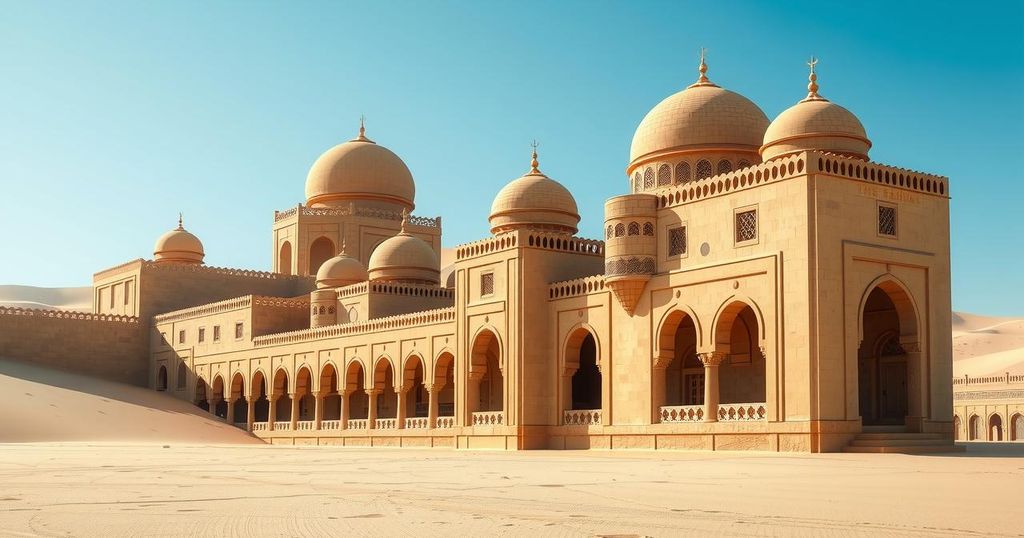The DRC government has recaptured several towns from rebels in eastern DRC, yet fighting continues as the M23 group remains in some areas. The situation is part of a long-standing conflict involving numerous armed groups, leading to severe humanitarian challenges, with significant displacement and ongoing violence affecting local populations.
The security situation in eastern Democratic Republic of the Congo (DRC) remains alarming despite recent military successes by the government forces. The Armed Forces of the DRC (FARDC) have successfully recaptured several towns from rebels, such as Ngungu and others in North Kivu and South Kivu provinces. Army spokesperson Guillaume Ndjike Kaiko reported that these towns had been under rebel control for months, indicating progress in military operations against the M23 group. Nevertheless, skirmishes continue in other areas, leaving some villages still under rebel occupation and significant unrest ongoing.
Tensions in eastern DRC stem from decades of conflict involving over 100 armed groups competing for territory amidst the region’s rich mineral resources. The M23 rebellion, which reignited in 2022, has led to significant humanitarian distress, with nearly two million people displaced. The DRC government, alongside the United Nations, has leveled accusations against Rwanda for purported military support to M23, allegations which Rwanda refutes. This volatile context has resulted in one of the world’s most severe humanitarian crises, with millions of casualties and displaced persons since the late 1990s.
Residents returning to recaptured towns express mixed emotions, facing ongoing security concerns. “We are in Ngungu, but we continue to suffer because the security is not well established,” shared local resident Nsabimana Alexis. Furthermore, families experience the ongoing threat of violence from M23 forces, complicating their search for safety and necessitating urgent humanitarian assistance. Non-governmental organizations report overwhelming challenges in providing support to the increasing number of displaced individuals seeking refuge from violence, underlining the critical need for more humanitarian responders in the area.
In conclusion, while the recapture of several towns signifies progress for the DRC government forces against the M23 rebels, the ongoing conflict remains a pervasive issue. The situation is exacerbated by the humanitarian crisis impacting millions, as challenges in establishing security and adequate aid persist in the eastern regions. The return of displaced residents is overshadowed by continued violence, indicating that lasting peace and security in the region remain distant goals.
The eastern Democratic Republic of the Congo has been embroiled in conflict for decades, primarily due to the presence of over 100 armed groups vying for control over its mineral-rich territories. The resurgence of the M23 rebel group, particularly since 2022, has intensified hostilities and instability in the region. Accusations of external support for M23 from neighboring Rwanda add another layer to the conflict, complicating achieving peace. This persistent violence has left millions displaced and created one of the largest humanitarian crises globally, necessitating urgent attention and intervention.
In summary, the situation in eastern DRC highlights the complexities of a conflict that involves a myriad of armed groups and ongoing humanitarian crises. Despite the government’s military advancements against M23 and the recapture of key towns, persistent violence, insecurity, and a lack of adequate humanitarian support paint a grim picture for the region’s future. A concerted effort is required to stabilize the region and address the pressing needs of the displaced populations.
Original Source: www.aljazeera.com




